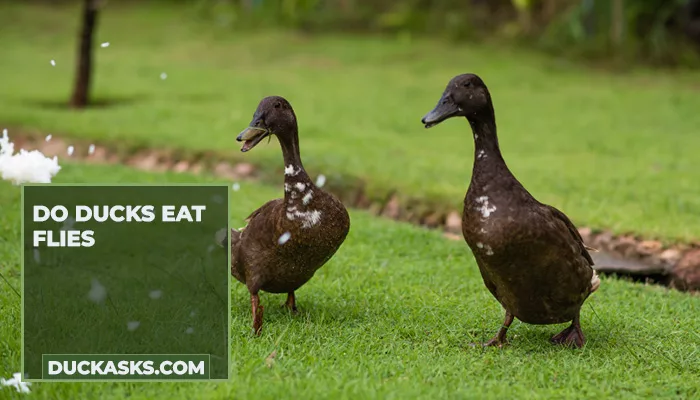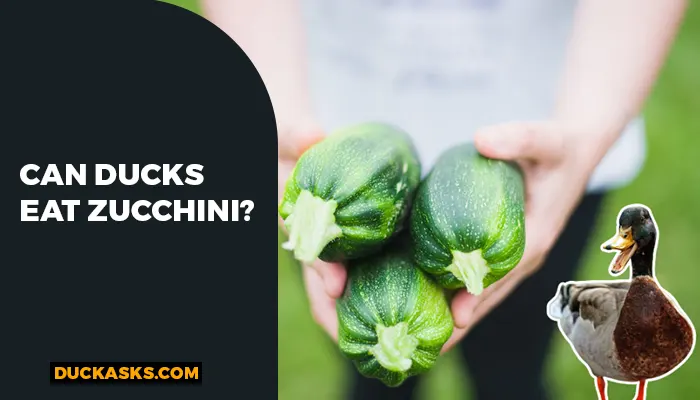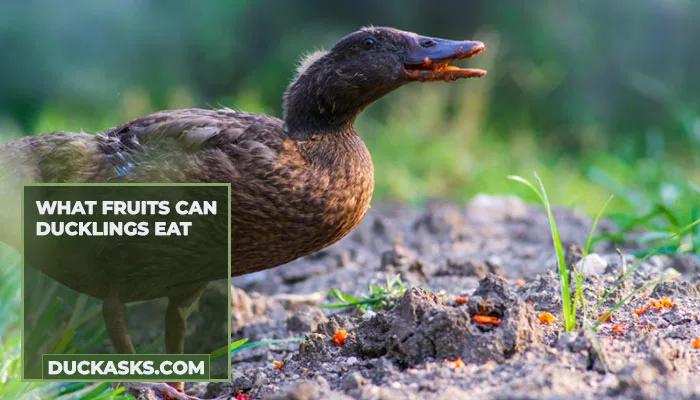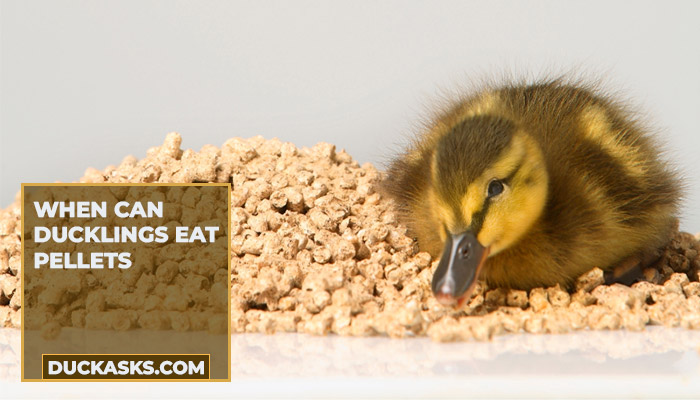Do Ducks Eat Acorns?
Are you curious about the dietary habits of ducks and wondering, “Do ducks eat acorns?”
Yes, ducks eat acorns. They love acorns with the small caps. Acorns can be super nutritious for ducks with all essential food elements. Plus, they are filled with carbohydrates which is the most significant part of a duck’s diet. Still, your ducks shouldn’t consume acorns daily since these can be toxic if fed in larger amounts.
However, there’s much more to comprehend regarding this topic. This article will explore whether ducks can eat acorns and provide insight into their dietary requirements. So, if you’re interested in learning more about duck nutrition, then keep reading!
Interested in similar topics on duck foods:
Are Acorns Safe for Ducks: An Overview
Ducks can eat acorns, but feeding them too many is not recommended. Acorns are high in tannins, which can harm ducks in large amounts. If ducks eat acorns in large quantities, it can cause digestive problems and lead to dehydration, weakness, and even death.

Therefore, it’s best to provide ducks with a balanced diet that includes a variety of foods, such as:
- Duck feed
- Vegetables
- Fruits
- Small amounts of grains, seeds, and nuts
If you choose to offer acorns to ducks, it’s essential to do so in moderation and ensure they have access to clean drinking water.
Do All Ducks Eat Acorns? What Kind of Ducks Eat Acorns?
Not all ducks eat acorns, and the types of ducks that are more likely to consume acorns live in areas where acorns are abundant, such as wood ducks and mallards.
However, even for these species, acorns should only be fed in moderation as part of a balanced diet since they can be harmful in large amounts.
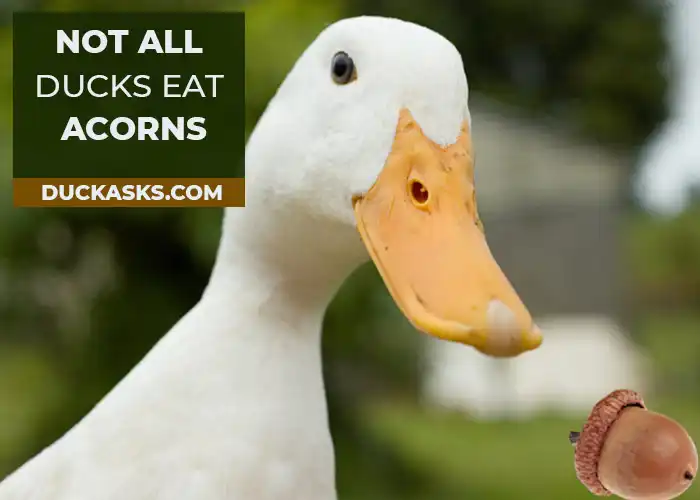
It’s important to note that different duck species have different dietary preferences and requirements. Moreover, their natural diet can vary based on their environment and food availability.
For example, some ducks feed mainly on insects and aquatic invertebrates, while others prefer a diet of aquatic plants and seeds. Therefore, it’s best to offer ducks a varied diet appropriate for their species and natural feeding habits.
How Do Ducks Eat Acorns?
When ducks eat acorns, they typically use their beaks to crack open the tough outer shell and access the nutmeat inside. Some ducks, such as wood ducks, are adapted to feed on acorns and have more vital bills that are better suited for opening their shells.
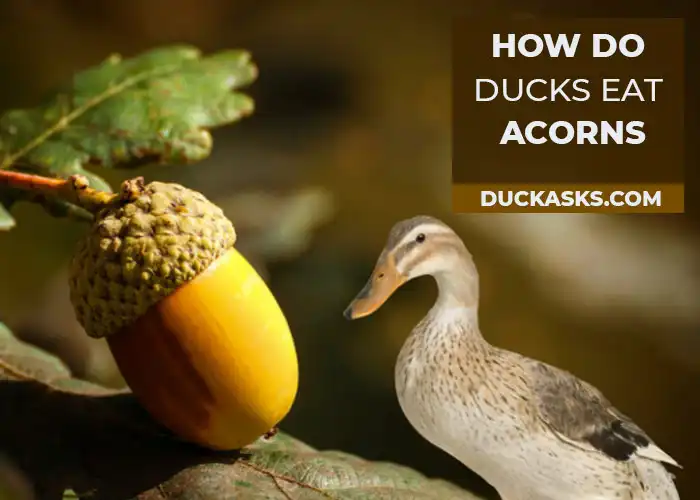
Once the shell is open, ducks may eat the nutmeat or crush it into smaller pieces before consuming it.
How Do Ducks Digest Acorns?
Ducks have a unique digestive system that allows them to consume and break down various foods, including acorns. When ducks eat acorns, the food is first ground up in their muscular gizzard, which helps break down the acorn’s tough outer shell.
The nutmeat then enters the duck’s small intestine, where digestive enzymes help to break down the food further and extract the nutrients. Once the nutrients are absorbed, the remaining waste is passed through the large intestine and expelled as feces.
Ways to Properly Feed Acorns to Ducks?
Acorns can be a nutritious addition to a duck’s diet, but it’s important to properly prepare them before feeding them to ducks. This section provides guidelines for selecting and gathering acorns, processing them, and feeding them to ducks.
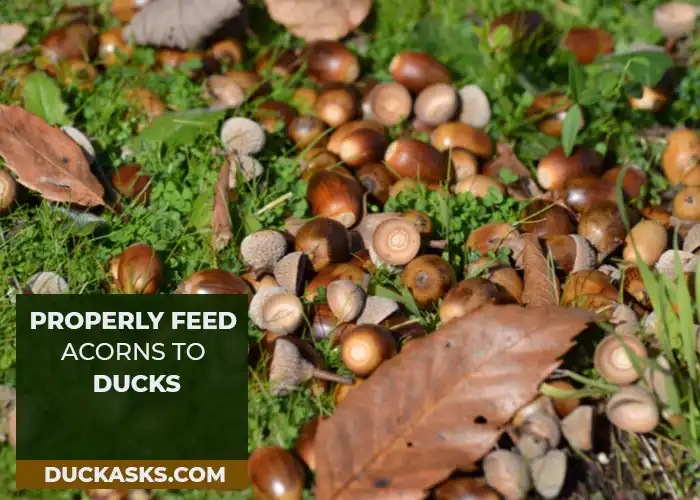
01. Selecting and Gathering Acorns
Selecting the right acorns for ducks is an important part of preparing them for consumption. When choosing acorns for ducks, there are a few key things to keep in mind:
Choose mature acorns: The best acorns for ducks are fully mature and have fallen naturally from the tree. Immature acorns can contain high levels of tannins and are generally not as nutritious.
Avoid damaged or moldy acorns: Acorns with moldy or insect holes should be avoided. These acorns can be contaminated with harmful substances and cause health problems for ducks if consumed.
Steer clear of acorns from treated trees: Avoid collecting acorns from trees sprayed with pesticides or other chemicals. These chemicals can be harmful to ducks and can be passed on through the acorns.
Choose a variety of acorns: Ducks thrive on a varied diet, so it’s a good idea to collect various acorns. Different types of acorns have slightly different nutrient profiles, and offering a variety can help ensure that ducks get all the nutrients they need.
02. Processing Acorns
Processing acorns for ducks is another essential step in preparing them for consumption. This is because it helps remove tannins that can harm ducks in large quantities. Here are the two main methods for processing acorns for ducks:
Soaking and boiling: This method involves soaking the acorns in water for several hours, then boiling them for an extended period of time. Soaking the acorns helps to leach out the tannins while boiling helps to soften the acorns and make them easier for ducks to digest.
After boiling, the acorns can be chopped or ground into smaller pieces for easier feeding.
Roasting: Roasting acorns is another striking option to feed ducks. This method involves heating the acorns in an oven or over an open flame until they are dry and crispy. Once roasted, the acorns can be chopped or ground into smaller pieces and fed to ducks.
Roasting can also give the acorns a nuttier flavor, which some ducks may prefer.
Note: Both methods require trial and error to determine the optimal soaking or roasting time. Ducks may have different preferences for the taste and texture of acorns, so it may take some experimentation to find the best preparation method for your ducks.
Additionally, it’s important to rinse the acorns thoroughly after processing to remove any remaining debris. With proper processing and preparation, acorns can be a nutritious and tasty addition to a duck’s diet.
03. Properly Feeding Acorns
Feeding acorns to ducks should be done in moderation and as part of a varied and balanced diet. Here are some tips to keep in mind when feeding acorns to ducks:
Start small: Introduce acorns to your ducks slowly and in small quantities to see how they react. Too many acorns too quickly can cause digestive issues or other health problems.
Monitor your ducks: Watch them closely after feeding them acorns to ensure they are digesting them properly and not experiencing any adverse effects. If you notice any issues, reduce or eliminate the number of acorns, you feed them.
Offer a variety of foods: Acorns should be only one part of a varied and balanced diet for ducks. Offer a mixture of grains, seeds, vegetables, and fruits and their natural diet of aquatic plants, insects, and small aquatic animals.
Consider the season: Acorns are more abundant in the fall and winter, so this may be the best time to feed them to ducks. When ducks have more access to natural food sources in the spring and summer, feeding them acorns may not be necessary.
Use caution with wild acorns: If you are collecting acorns from the wild, properly process them to remove tannins and other harmful substances. Additionally, ensure the area where the acorns were collected was not treated with pesticides or other chemicals that could harm ducks.
What Acorns Do Ducks or Wood Ducks Like Best?
While there isn’t a definitive answer to this question, ducks may prefer certain oak trees over others. In general, ducks prefer sweet rather than bitter acorns. Furthermore, bitter acorns contain higher levels of tannins.
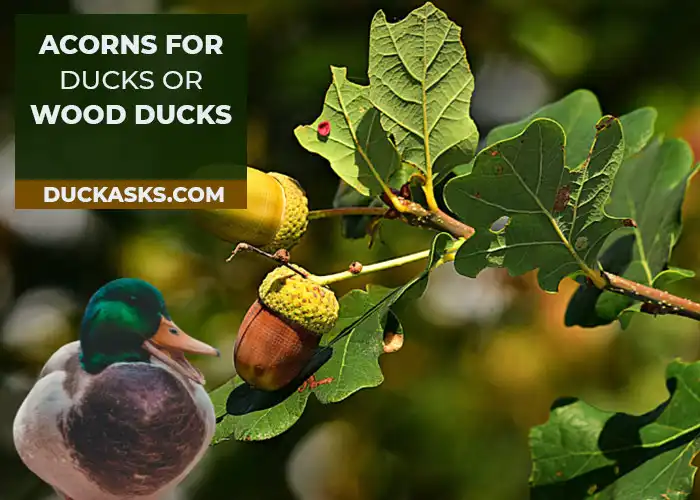
Some oak species that produce sweet acorns that ducks may enjoy include:
- Pin oak
- Water oak
- Swamp chestnut oak
- White oak
However, it’s important to note that even sweet acorns should be fed to ducks in moderation and as part of a varied and balanced diet.
Frequently Asked Questions
1. How Many Acorns Does a Duck Eat Per Day?
There isn’t a specific number of acorns that a duck will eat per day. The number of acorns a duck can eat per day depends on several factors, such as the size of the duck, its age, and the availability of other food sources.
2. Do Acorns Provide Ducks With the Nutrients They Need?
Acorns can provide ducks with some nutrients, but they are not a complete source of all the nutrients they need in their diet. Acorns are rich in carbohydrates and fats, which can be a good source of energy for ducks. They also contain some protein, fiber, and various vitamins and minerals.
3. Which aged duck can eat acorns?
In general, ducks of all ages can eat acorns. However, younger ducks may have more difficulty digesting acorns because their digestive systems are not fully developed.
Thus, consult with a veterinarian or avian specialist to ensure that your duck’s diet is appropriate for its age, health, and individual needs.
Bottom Line
Ducks enjoy snacking on acorns; these nutrient-rich nuts can provide them with a tasty and energy-rich treat. However, it’s necessary to remember that acorns should not make up the bulk of a duck’s diet and should constantly be introduced gradually and in moderation.
We believe you have all the answers you need through this blog. So, feel free to share this content and connect with us through Facebook, Pinterest, and Twitter.
Article References:
- https://www.mossyoak.com/our-obsession/blogs/waterfowl/duck-diet-best-foods-for-ducks
- https://www.outdoorlife.com/blogs/survivalist/survival-skills-5-ways-eat-acorns/
- https://www.themeateater.com/wild-and-whole/forage/how-to-harvest-process-and-eat-acorns
Image Credit:
- Canva.com/photos

